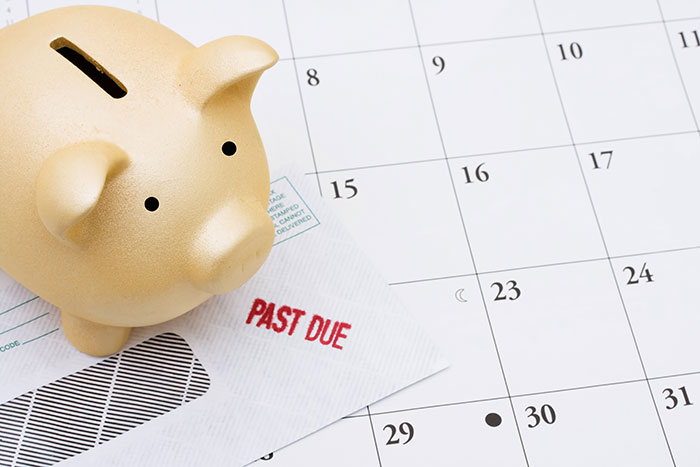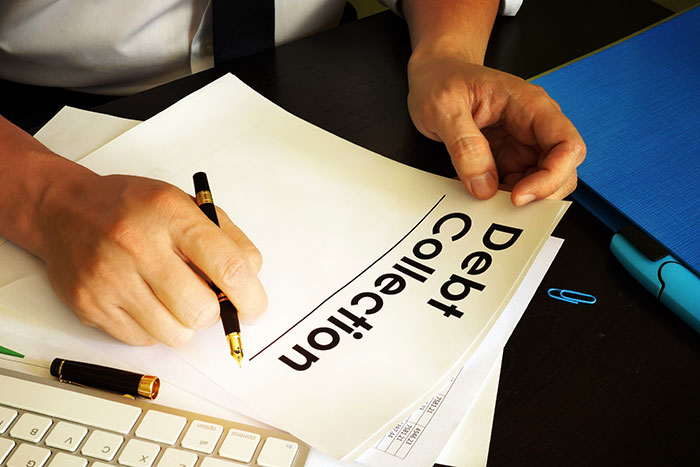Late payment of commercial debts is a growing concern within the UK economy. 1 in 3 businesses fail within the first year due to cash flow problems and a leading contributor to this is late payments.
Late payment of commercial debts can hinder a cash flow of a business substantially, throwing the business itself into turmoil if one big customer is late paying their invoice.
The knock-on effects of one customer paying late are still underestimated. If your company is paid late, you could be paying your own suppliers late, causing them to pay their contractors late, and so on. Also, the longer this goes on, the more trouble it will spell for your business. You could be hit with late payment fees or interest, or even served court papers for failing to pay an invoice which could result in a CCJ. This would damage your credit score and could squash a lot of opportunities for future business ventures or further extended credit for your business.
So what can be done?
Fortunately for UK businesses the EU’s Late Payments Directive offers some power when it comes to late payments. The term Late Payment legislation refers to the Late Payments of Commercial Debts (Interest) Act 1998, the Late Payment of Commercial Debts Regulations 2002 and the Late Payment of Commercial Debts Regulations 2013.
The statutory right to claim interest and other compensation recovery costs and entitlements being made from 16 March 2013, are not compulsory and it is for the supplier to decide whether or not to use rights made available.
It is worth noting that adding in extra charges without prior warning could significantly damage your relationship with your customer, so if you are going to charge late payment fees; ensure they are made aware that this is a possibility when they sign the contract.
Why should you charge late payment fees?
Many companies include late payment fees for multiple reasons; especially for being proactive about your cashflow. If you’ve repeatedly asked for payment and aren’t getting anywhere, the process can be pretty draining not only financially but emotionally too.
Chances are if your client isn’t paying you, they probably aren’t paying their other suppliers either. You’ll get paid before other contractors if you have stricter payment policies.

If your clients run the risk of paying extra fees if they don’t pay you on time, they may prioritise your payment.
Similarly, with banks that offer an ‘interest-free period’, if the money isn’t paid back within that time, interest charges are then added. It is a good policy that many businesses mirror for their clients.
Having a strict payment policy demonstrates a professional, serious business. By having a late payment policy in place, you are demonstrating that you aren’t willing to put up with late or non-payment for your services. It establishes that you are a serious business with strict, professional policies when dealing with other companies and you will return the same professional manner as you expect from your customers for a good working relationship.
What late payment fees can you charge?
You can add interest to late payments using the statutory interest rate of 8%, plus the Bank of England’s flat rate for business to business transactions. So for example, as the interest rate currently stands at 0.75%*, you can charge 8.75% from the day the invoice became overdue. You’ll then need to send another invoice to show the amount you are adding. It is worth remembering you cannot claim statutory interest if there’s a different rate of interest in a contract.
You can also claim debt recovery compensation costs on late payments, which is a fixed sum for the cost of recovering a late commercial payment on top of claiming interest from it. The amount you are allowed to claim depends on the amount of debt, and it can only be charged once for each payment.
The late payment legislation has said you can claim:
- £40 for debts up to £999.99
- £70 from £1,000 to £9,999.99
- £100 for £10,000 and above.

Debt Recovery
If late payment fees aren’t enough to get you paid, you have two options for debt recovery. You can go down the debt collectors route, or you can take legal action. There are good and bad aspects of both, which you can read about in our guide to debt recovery.
Creditsafe also works with trusted partners to collect your debt for you, taking it out of your hands on a no-win, no-fee basis.
Late payment prevention
Prevention is better than cure when it comes to late payments; here are our top 10 tips for getting paid on time:
- Establish clear payment terms for all of your customers. Be clear about when you expect to be paid before doing business with anyone at the point of sale. It is very easy to get caught up in the buzz of winning a new business opportunity but if you do not make it clear as to the payment procedure it can damage the renewal business process.
- Ask for payment up front if possible, however, this may not always be necessary. Instead, you could offer an incentive for paying early, such as a discount, loyalty points or a gift, etc. By giving your customers an incentive to pay early, they will strive to do so; or at least rethink withholding payment.
- Ensure you have a signed contract or agreement in place with each customer. By having everything in writing you are protecting yourself legally and it can help you avoid disputes further down the line. If you are going to charge late payment fees, ensure this is in your contract. Always have a signature on the dotted line when dealing with money.
- Issue your paperwork on time. The sooner you issue an invoice to your customer, the sooner you’ll get paid. This also leaves no excuses for a payment to be delayed. If you need to, look online for tips on how to send an invoice if you struggle to do so yourself, or look for a service that offers online invoicing.
- Ensure your paperwork is accurate. Don’t give anyone an excuse to delay payment because the details of the invoice were incorrect or they need it amended. Check the dates, names, service description, address and amount owed are correct.
- Maintain a calendar and prioritise collections. Make life easy for yourself by setting up prompts to issue and follow up invoices. By keeping on top of your invoices and finances, you are keeping on top of your customers.
- Don’t leave it too long. Ensure you are on top of all customer transactions and keep in touch with them around your invoice period. By doing this they will learn that you are not lenient with payment.
- Establish good working relationships with customers. Companies are more likely to pay people they want to carry on working with, so by establishing a good relationship and keeping on good terms, your customers are more likely to keep paying you regularly and on time.
- Make it easy for customers to pay your bills. Accept payments in multiple formats including cheques, cash, BACS and credit cards. It would also be greatly beneficial if you allow your customers to pay online via debit card or PayPal. Giving multiple options allows clients to choose what suits them best, which in turn, could mean faster payments.
Ensuring money is coming in and out of your business is a critical part of your credit control process, as well as having a process set up to tackle late payments and recover any debt if you need to.
Creditsafe is equipt to help with all your needs when it comes to debt recovery. From monitoring your customers to debt chasing letters and debt collection; we offer the tools to help get your invoices paid.